Faculty
Faculty members and guest lecturers are international experts in research impact assessment. The organising committee and the faculty team are committed to designing and delivering a high quality programme that best fits the needs of participants.
| Cy Frank, President and Chief Executive Officer, Alberta Innovates – Health Solutions (AIHS) Scientific Director, ISRIA 2014 [+]
As of January 2014, he has published 266 peer reviewed articles, 40 book chapters, and 457 meeting abstracts. He was the inaugural Scientific Director of the Institute of Musculoskeletal Health and Arthritis of Canadian Institutes of Health Research from 2000-2006 and President of the Canadian Orthopaedic Association in 2009, and the Vice President Research Strategy for Alberta Health Services from 2010-2013. |
|
| Kathryn Graham, Director, Performance Management and Evaluation, AIHS School Director, ISRIA 2014 [+]
In health care, she participated in the implementation of a number of continuum of care models such as soft-tissue injuries, brain injury and chronic pain. The strategic components included a number of innovative practices such as disability management tools, medical advisory guidelines, case management protocols, as well as a process for setting standards and developing a reporting system for evaluating thousands of different health care providers across a preferred provider network in Alberta. She has an advocate role on the Canadian Evaluation Society Board (Alberta Chapter) and is a regular contributor to both the Canadian and American annual evaluation conferences. She is also a member on a number of organizations that focus on impact including the National Alliance of Provincial Health Research Organizations (NAPHRO), the Consortia Advancing Standards in Research Administration Information (CASRAI) and the Science of Science Network on Mental Health headed by the Graham Boeckh Foundation and facilitated by RAND Europe. She is a social scientist and her research interests are in systems level monitoring and evaluation, impact assessment, “Science of Science”, mental health and clinical outcomes. She has a Ph.D. in Applied Psychology from the University of Cranfield, England with a specialization in Industrial Psychology and measurement.
|
|
| Eddy Nason, Director of Health and Innovation, Institute on Governance (IOG) Programme Director, ISRIA 2014 [+]
|
|
| Paula Adam, Agency for Health Quality and Assessment of Catalonia (AQuAS) [+]
Paula is currently working on the assessment of the impact of the Catalan greatest charity, circa 100 Million Euros in the course of 20 editions. She is also involved in the research characterisation and assessment of the scientific activities performed in the top-quality Health Research Institutes of Spain according to an accredited ranking. She has conducted several studies tracing the outcomes of the research funded by AQuAS (accountability in relation to public investment) that have allowed her to use different methodological approaches ranging from the development and application of questionnaires till qualitative methodologies. She also has expertise in the assessment of healthcare delivery, healthcare priority setting and waiting lists. In the past, Paula has worked at the OECD and The World Bank doing policy analysis and assessment. Paula was born in 1966 in Spain and holds a PhD in Economics from the European University Institute in Florence (Italy).
|
|
| Éric Archambault, Science-Metrix [+]
Dr. Archambault is a renowned researcher and practitioner in scientometrics and is a member of the editorial board of the journal Scientometrics, a life-time member of the International Society for Scientometrics and Infometrics (ISSI) and of the Canadian, American and European evaluation societies. Dr. Archambault has published about 20 papers in refereed journals and has presented his research at several national and international conferences. He has a Doctorate in Science and Technology Policy Studies from the University of Sussex, UK. (SPRU). |
|
| Martin Buxton, Health Economics Research Group, Brunel University
[+]
Amongst a number of other applied and methodological research interests (including the economic evaluation of screening programmes and of transplantation surgery, and methodological work on making economic evaluation methods appropriate to policy-makers), an important research focus has been a series of studies assessing the impact and return on investment from publically funded medical research. With a colleague in HERG, he developed the Buxton-Hanney payback framework which is now widely used, and has led influential UK projects to estimate the economic returns to public investment in cardio-vascular and most recently cancer research. He has advised many research funding agencies, particularly in the UK and Canada, on methods of impact assessment. |
Claire Donovan, Brunel University [+]
|
| Jonathan Grant, Director, Kings Policy Institute, King's College London [+]
Recently Jonathan led a project reviewing the Excellence in Innovation for Australia (EIA) Trial on behalf of the Australian Technology Network of Universities. Modelled, in part, from the impact element of the UK Research Excellence Framework (REF), the EIA Trial aimed to assess the non-academic impact of research generated by a subset of Australian universities and be a pilot for a potential companion piece to the next Excellence in Research for Australia (ERA), a nationwide performance assessment of Australian universities. Jonathan Grant was President of RAND Europe between June 2006 and October 2012. Under his leadership Jonathan oversaw the doubling of RAND Europe’s activity in Europe, the founding of a vibrant and successful office in Brussels, and the establishment of the Cambridge Centre for Health Services Research, a joint venture with the University of Cambridge. Jonathan joined RAND in 2002. He was formerly Head of Policy at The Wellcome Trust. Jonathan received his Ph.D from the Faculty of Medicine, University of London and his B.Sc. (Econ) from the London School of Economics.
|
|
| Chris Henshall, Health Economics Research Group, Brunel University [+]
|
|
| Deanne Langlois-Klassen, AIHS [+]
|
|
| Alexandra Pollitt, RAND Europe [+]
|
|
| Maite Solans-Domènech, AQuAS [+]
She has conducted several studies tracing the outcomes of the research funded by AQuAS (accountability in relation to public investment) that have allowed her to use different methodological approaches ranging from the development and application of questionnaires till qualitative methodologies. She also has worked with different projects related to the elaboration of evidence base reports such as health technology assessments, development of indicators to measure the effectiveness of medical practice, prioritisation of interventions, and the development, implementation and evaluation of metric properties of perceived health questionnaires. |
|
| Steven Wooding, RAND Europe [+]
Wooding has particular expertise is in developing and applying measurement frameworks and evaluation tools that capture the diverse range of benefits produced by research. This includes work examining research in biomedicine, social science and the arts and humanities. Wooding has worked for government and charity sector clients in the UK, Ireland, Canada, USA and Australia and led a number of international studies on evaluating the long term – 10-25 year – impacts of research. He has methodological interests in visualising concepts and data alongside the quantification of qualitative information. Wooding received his M.A. in natural sciences and his Ph.D. in cell biology from the University of Cambridge. |
|
Congratulations to the ISRIA Banff 2014 Alumni Travel Award recipients!
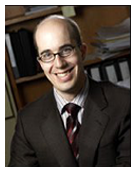 My personal learning goal for ISRIA 2013 was to advance my understanding of the methods for assessing impact. Following ISRIA 2013, I undertook three actions to improve impact reporting at CADTH: Developing case study guidelines featuring checklists to guide the types of information required to create robust case studies; streamlining our reporting in line with the checklists to gather less information, but of a better quality, using e-forms; and initiating a community of practice, the goal of which is to improve impact and evaluation practices though collective solutions to common challenges. Using guidance from ISRIA 2013, efficiencies have been gained on the reporting side, as less time is spent gathering and analyzing impact-related information. The case studies – “impact stories” as we call them – have been well-received by our funders and Board of Directors. The community of practice promises to improve the quality of impact reporting while building capacity and promoting better communication of impact.
My personal learning goal for ISRIA 2013 was to advance my understanding of the methods for assessing impact. Following ISRIA 2013, I undertook three actions to improve impact reporting at CADTH: Developing case study guidelines featuring checklists to guide the types of information required to create robust case studies; streamlining our reporting in line with the checklists to gather less information, but of a better quality, using e-forms; and initiating a community of practice, the goal of which is to improve impact and evaluation practices though collective solutions to common challenges. Using guidance from ISRIA 2013, efficiencies have been gained on the reporting side, as less time is spent gathering and analyzing impact-related information. The case studies – “impact stories” as we call them – have been well-received by our funders and Board of Directors. The community of practice promises to improve the quality of impact reporting while building capacity and promoting better communication of impact.
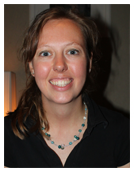 I started as the Research Impact Manager at Worldwide Cancer Research in June 2013 after working as the maternity cover for our Science Communications Manager. My background is in science, so the field of Research Impact Assessment (RIA) was completely new me; the ISRIA in Barcelona seemed like a perfect learning opportunity.
I started as the Research Impact Manager at Worldwide Cancer Research in June 2013 after working as the maternity cover for our Science Communications Manager. My background is in science, so the field of Research Impact Assessment (RIA) was completely new me; the ISRIA in Barcelona seemed like a perfect learning opportunity.
ISRIA was a very steep learning curve, but it helped me to set up and fine-tune the monitoring and evaluation system that we now have in place. As a result, we are now showing accountability both to our Board of Trustees and our supporters, which we had never done before. Results so far show that our research strategy is successful. I presented at a workshop on RIA for other UK medical research charities, where there was a lot of interest in how Worldwide Cancer Research tracks the impact of a basic science research programme. As well as giving me a great network of contacts, the school provided me with a highly sought after skillset that is helping me carry out my work, and will prove useful for any future career progression.
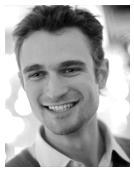 I came to the Barcelona school only partially aware of some of the formal research impact assessments carried out for major research funders, by organisations like RAND and CAHS. I was prepared to be intimidated! These were surely larger, better-resourced institutions, with long established scientific programmes. Would I be able to find anything practical to take back to my own organisation, among the assembled minds, methods and manuscripts?
I came to the Barcelona school only partially aware of some of the formal research impact assessments carried out for major research funders, by organisations like RAND and CAHS. I was prepared to be intimidated! These were surely larger, better-resourced institutions, with long established scientific programmes. Would I be able to find anything practical to take back to my own organisation, among the assembled minds, methods and manuscripts?
I left the school with a clear answer – and my efforts to establish a research impact assessment programme at MSF since then will form the focus of my presentations in Banff.
What impressed me most from the Barcelona school? A common ambition to build a community of shared practice. How to ensure research impact assessment delivers value / why it is important to draw on sound methods / what to focus resources on, to build a worthwhile programme which will – in itself – have a positive impact?
I’m at the earliest stages of asking these questions – and am reassured I’m not the only one! I look forward to meeting you all, sharing experiences, and discussing new approaches as we build on what was initiated in Barcelona (but this time perhaps with more trees, and less tapas).

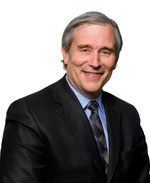 Dr. Cy Frank obtained degrees in zoology, education and medicine before becoming an Orthopaedic surgeon in 1980. He did a 3 year research Fellowship in San Diego and subspecialty training in knee surgery at the University of Toronto in 1983 before returning to Alberta to pursue a combined career in clinical care, research and education at University of Calgary.
Dr. Cy Frank obtained degrees in zoology, education and medicine before becoming an Orthopaedic surgeon in 1980. He did a 3 year research Fellowship in San Diego and subspecialty training in knee surgery at the University of Toronto in 1983 before returning to Alberta to pursue a combined career in clinical care, research and education at University of Calgary.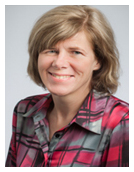 Kathryn Graham is the Director of the Performance Management and Evaluation Department at Alberta Innovates - Health Solutions (AIHS) which is a Canadian-based, publicly-funded, not-for-profit, provincial health research and innovation organization. She has over 20 years of strategic evaluation experience in health care and has worked with provincial and federal organizations in the areas of quality assurance, health research and innovation. Her expertise is in developing performance management and evaluation strategies and implementing these at system, program and network level. Implementation included the application of the Canadian Academy of Health Sciences (2009) research impact assessment framework.
Kathryn Graham is the Director of the Performance Management and Evaluation Department at Alberta Innovates - Health Solutions (AIHS) which is a Canadian-based, publicly-funded, not-for-profit, provincial health research and innovation organization. She has over 20 years of strategic evaluation experience in health care and has worked with provincial and federal organizations in the areas of quality assurance, health research and innovation. Her expertise is in developing performance management and evaluation strategies and implementing these at system, program and network level. Implementation included the application of the Canadian Academy of Health Sciences (2009) research impact assessment framework.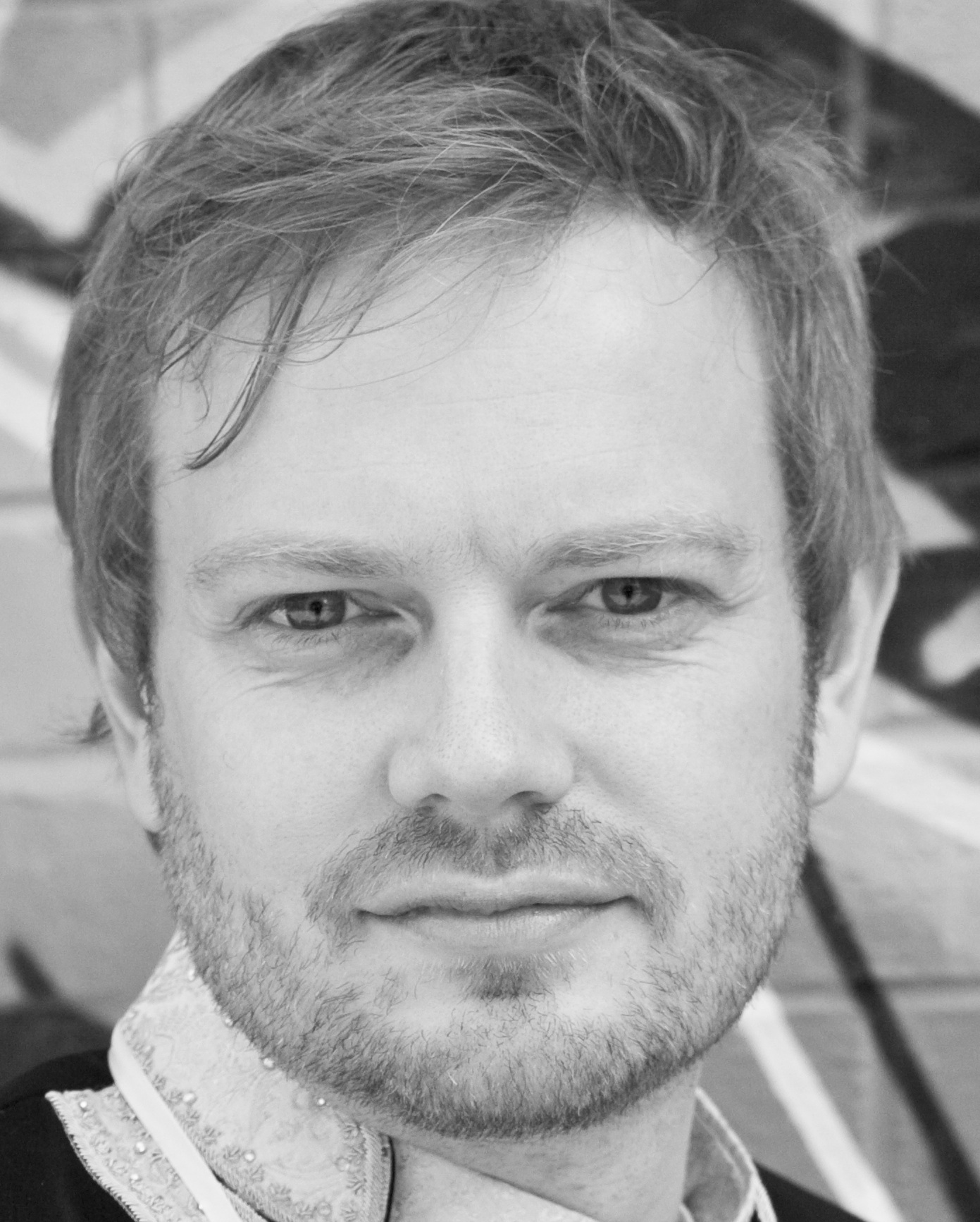 Eddy Nason is the Director of Health and Innovation at the Institute on Governance (IOG). His work ranges from innovation and R&D through to health and social care. He has advised governments, NGOs and charities in Canada, the United Kingdom, Ireland, the Netherlands and Australia on research evaluation. In Canada he has developed return on investment approaches for Canadian health research (through the Canadian Academy of Health Sciences - CAHS), federal government policy research (through Economic and Social Development Canada - ESDC) and team-based health care (through a Federal/Provincial/Territorial committee). Eddy has been on the scientific advisory committees of the Institute for Health Services and Policy Research and the Institute for Clinical Evaluative Sciences, and was part of a three-person task force assessing CIHR as an evidence-driven research funding organization. Prior to joining the IOG he worked with Canadian Policy Research Networks, the Canadian Academy of Health Sciences and the RAND Corporation.
Eddy Nason is the Director of Health and Innovation at the Institute on Governance (IOG). His work ranges from innovation and R&D through to health and social care. He has advised governments, NGOs and charities in Canada, the United Kingdom, Ireland, the Netherlands and Australia on research evaluation. In Canada he has developed return on investment approaches for Canadian health research (through the Canadian Academy of Health Sciences - CAHS), federal government policy research (through Economic and Social Development Canada - ESDC) and team-based health care (through a Federal/Provincial/Territorial committee). Eddy has been on the scientific advisory committees of the Institute for Health Services and Policy Research and the Institute for Clinical Evaluative Sciences, and was part of a three-person task force assessing CIHR as an evidence-driven research funding organization. Prior to joining the IOG he worked with Canadian Policy Research Networks, the Canadian Academy of Health Sciences and the RAND Corporation.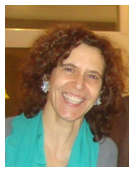 Paula Adam is responsible for Research Assessment at the Agency for Health Quality and Assessment of Catalonia (AQuAS). She has been leading the ISOR Group which carries on studies on the impact of health sciences research in Spain. One achievement of this group has been the accurate impact assessment of a public (non-commercial) call on clinical and health services research (from 1996 to 2004) with multiple ultimate purposes: accountability to donors, advocacy for future public investments in translational research, learning on how to accelerate impact and strategy for shaping future research calls. Another achievement of the ISOR group is the creation of the SIRECS registry database, which collects detailed information on research inputs and throughputs (e.g. clinical trails) for all Catalan biomedical research institutes and centres. One end goal of this registry, apart from accountability and analysis, is the use for implementing ‘pay-for-performance’ formulae in the mechanism for public funding of research in institutes and centres.
Paula Adam is responsible for Research Assessment at the Agency for Health Quality and Assessment of Catalonia (AQuAS). She has been leading the ISOR Group which carries on studies on the impact of health sciences research in Spain. One achievement of this group has been the accurate impact assessment of a public (non-commercial) call on clinical and health services research (from 1996 to 2004) with multiple ultimate purposes: accountability to donors, advocacy for future public investments in translational research, learning on how to accelerate impact and strategy for shaping future research calls. Another achievement of the ISOR group is the creation of the SIRECS registry database, which collects detailed information on research inputs and throughputs (e.g. clinical trails) for all Catalan biomedical research institutes and centres. One end goal of this registry, apart from accountability and analysis, is the use for implementing ‘pay-for-performance’ formulae in the mechanism for public funding of research in institutes and centres.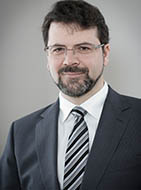 Éric Archambault is the President and founder of Science-Metrix. With over 20 years experience, he has conducted or managed over 150 S&T evaluation and bibliometric studies, many of a complex nature, for Canadian and international governmental organizations, as well as for clients in the academic, not-for-profit and private sectors.
Éric Archambault is the President and founder of Science-Metrix. With over 20 years experience, he has conducted or managed over 150 S&T evaluation and bibliometric studies, many of a complex nature, for Canadian and international governmental organizations, as well as for clients in the academic, not-for-profit and private sectors.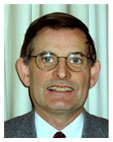 Martin Buxton, Health Economics Research Group, Brunel University
Martin Buxton is Emeritus Professor of Health Economics at Brunel University and has been actively involved in research on the economics of health and medical care, and on broader aspects of health service policy, for forty years. After working as an Economic Adviser at the Department of Health and Social Security in London, he has been based at Brunel University where, as Director until he stepped down at the beginning of 2010, he built up the Health Economics Research Group (HERG) into one of the leading University-based units for health economic evaluation research.
Martin Buxton, Health Economics Research Group, Brunel University
Martin Buxton is Emeritus Professor of Health Economics at Brunel University and has been actively involved in research on the economics of health and medical care, and on broader aspects of health service policy, for forty years. After working as an Economic Adviser at the Department of Health and Social Security in London, he has been based at Brunel University where, as Director until he stepped down at the beginning of 2010, he built up the Health Economics Research Group (HERG) into one of the leading University-based units for health economic evaluation research.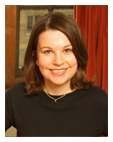 Dr. Claire Donovan (FRSA) has published widely on research evaluation and research policy. She joined HERG at Brunel University in 2010, and previously held research and teaching posts at The Australian National University, Oxford University, and The Open University. She has been a visiting fellow at Cambridge University, Harvard University, the London School of Economics, the University of Singapore, and the University of Sussex. Her recent research has included a Payback evaluation of the impact of research funded by Australia’s National Breast Cancer Foundation (with Teresa Jones and Stephen Hanney), and a report to the UK government on measuring cultural value. In 2006 she was Chair of the Australian Government’s Technical Working Group on Research Impact, and from 2012-13 she was Chair of an international advisory group overseeing the evaluation of the impact of Irish Health Board-funded research. She is an Associate Editor of the journal BMC Medical Research Methodology.
Dr. Claire Donovan (FRSA) has published widely on research evaluation and research policy. She joined HERG at Brunel University in 2010, and previously held research and teaching posts at The Australian National University, Oxford University, and The Open University. She has been a visiting fellow at Cambridge University, Harvard University, the London School of Economics, the University of Singapore, and the University of Sussex. Her recent research has included a Payback evaluation of the impact of research funded by Australia’s National Breast Cancer Foundation (with Teresa Jones and Stephen Hanney), and a report to the UK government on measuring cultural value. In 2006 she was Chair of the Australian Government’s Technical Working Group on Research Impact, and from 2012-13 she was Chair of an international advisory group overseeing the evaluation of the impact of Irish Health Board-funded research. She is an Associate Editor of the journal BMC Medical Research Methodology.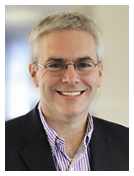 Jonathan Grant is Director of the King’s Policy Institute at King’s College London. His main research interests are on R&D policy and the use of research and evidence in policy and decision making. Jonathan was formerly President of RAND Europe and Head of Policy at the Welcome Trust. He and colleagues continue to provide analytical support on the implementation of the English Department of Health's internationally acclaimed R&D strategy, Best Research for Best Health. Jonathan was co-principal investigator of the influential report, Medical Research, What’s it worth, that estimated the economic returns from biomedical and health research in the UK (2008).
Jonathan Grant is Director of the King’s Policy Institute at King’s College London. His main research interests are on R&D policy and the use of research and evidence in policy and decision making. Jonathan was formerly President of RAND Europe and Head of Policy at the Welcome Trust. He and colleagues continue to provide analytical support on the implementation of the English Department of Health's internationally acclaimed R&D strategy, Best Research for Best Health. Jonathan was co-principal investigator of the influential report, Medical Research, What’s it worth, that estimated the economic returns from biomedical and health research in the UK (2008).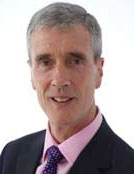 Chris Henshall, Health Economics Research Group, Brunel University. Dr. Henshall was the Chair of the Edmonton-based Health Technology Assessment international (HTAi) Policy Forum for the period of 2010 to 2013. He serves on the Alberta Research and Innovation Authority board, is an Associate Professor in the Health Economics Research Group at Brunel University and an Honorary Fellow in the Centre for Health Economics at the University of York in the UK. Dr. Henshall was Director of the Science and Engineering Base Group in the Office of Science and Technology in the Department of Trade and Industry in London, where he was responsible for around $5 billion US annually of government support for research and innovation. Before joining the Department of Trade and Industry, Dr. Henshall served as Deputy Director of Research and Development in the Department of Health. During his tenure there, he was closely involved in establishing the National Health Service Health Technology Assessment (HTA) Program, the National Institute for Clinical Excellence, and, with colleagues in other countries, INAHTA. Over the years, he has also been involved in various initiatives to promote and co-ordinate HTA across Europe.
Chris Henshall, Health Economics Research Group, Brunel University. Dr. Henshall was the Chair of the Edmonton-based Health Technology Assessment international (HTAi) Policy Forum for the period of 2010 to 2013. He serves on the Alberta Research and Innovation Authority board, is an Associate Professor in the Health Economics Research Group at Brunel University and an Honorary Fellow in the Centre for Health Economics at the University of York in the UK. Dr. Henshall was Director of the Science and Engineering Base Group in the Office of Science and Technology in the Department of Trade and Industry in London, where he was responsible for around $5 billion US annually of government support for research and innovation. Before joining the Department of Trade and Industry, Dr. Henshall served as Deputy Director of Research and Development in the Department of Health. During his tenure there, he was closely involved in establishing the National Health Service Health Technology Assessment (HTA) Program, the National Institute for Clinical Excellence, and, with colleagues in other countries, INAHTA. Over the years, he has also been involved in various initiatives to promote and co-ordinate HTA across Europe.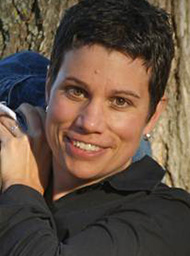 Deanne brings broad public and population health experience to the analysis and evaluation of health research programs. Responsible for analyzing evidence in the assessment of health research, innovation and organizational performance, she also provides research expertise to ensure scientific rigor and appropriate methodological approaches in the assessment of AIHS’s portfolios and programs. In addition to her experience as a physiotherapist and health program manager, Deanne has a M.Sc. in Medical Sciences (Population Health) and a Ph.D. in Epidemiology from the University of Alberta, Canada.
Deanne brings broad public and population health experience to the analysis and evaluation of health research programs. Responsible for analyzing evidence in the assessment of health research, innovation and organizational performance, she also provides research expertise to ensure scientific rigor and appropriate methodological approaches in the assessment of AIHS’s portfolios and programs. In addition to her experience as a physiotherapist and health program manager, Deanne has a M.Sc. in Medical Sciences (Population Health) and a Ph.D. in Epidemiology from the University of Alberta, Canada.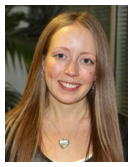 Alexandra Pollitt is a Senior Analyst at RAND Europe, where her work focuses primarily on research evaluation. She recently finished work on an international, three-year project looking at the impacts of research in mental health and neuroscience, having previously contributed to a similar study on cardiovascular research. Alex holds an MA (First Class) in Experimental Psychology from Oxford University. Prior to joining RAND, she worked in impact assessment, monitoring and evaluation for an international NGO focusing on education and gender issues in sub-Saharan Africa. Alex also has experience in education assessment and previously worked in psychiatry research at the University of Cambridge.
Alexandra Pollitt is a Senior Analyst at RAND Europe, where her work focuses primarily on research evaluation. She recently finished work on an international, three-year project looking at the impacts of research in mental health and neuroscience, having previously contributed to a similar study on cardiovascular research. Alex holds an MA (First Class) in Experimental Psychology from Oxford University. Prior to joining RAND, she worked in impact assessment, monitoring and evaluation for an international NGO focusing on education and gender issues in sub-Saharan Africa. Alex also has experience in education assessment and previously worked in psychiatry research at the University of Cambridge.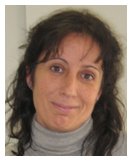 Maite Solans-Domènech is currently a research leader at the Agency for Health Quality and Assessment of Catalonia (AQuAS), where she participates in the monitoring, evaluation and assessment of the impact of biomedical research. She is currently working on the assessment of the impact of the about 100 million Euros that the citizens of Catalonia donated to the TV3 Telethon in the course of its first 20 editions. She is also leading the research characterisation and assessment of the scientific activities performed in the top-quality Health Research Institutes of Spain according to an accredited ranking.
Maite Solans-Domènech is currently a research leader at the Agency for Health Quality and Assessment of Catalonia (AQuAS), where she participates in the monitoring, evaluation and assessment of the impact of biomedical research. She is currently working on the assessment of the impact of the about 100 million Euros that the citizens of Catalonia donated to the TV3 Telethon in the course of its first 20 editions. She is also leading the research characterisation and assessment of the scientific activities performed in the top-quality Health Research Institutes of Spain according to an accredited ranking.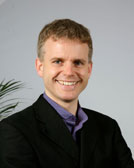 Steven Wooding is the director of RAND Europe's Innovation and Technology Policy programme and also the unit's research quality assurance manager. He currently works principally in the science of science including work in research evaluation, science policy and improving funding decisions in research. He is also interested in the effects of genetic technologies on health and public engagement with science.
Steven Wooding is the director of RAND Europe's Innovation and Technology Policy programme and also the unit's research quality assurance manager. He currently works principally in the science of science including work in research evaluation, science policy and improving funding decisions in research. He is also interested in the effects of genetic technologies on health and public engagement with science.


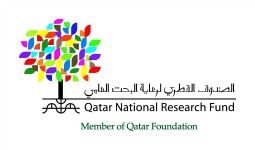
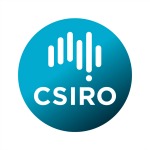
.png)